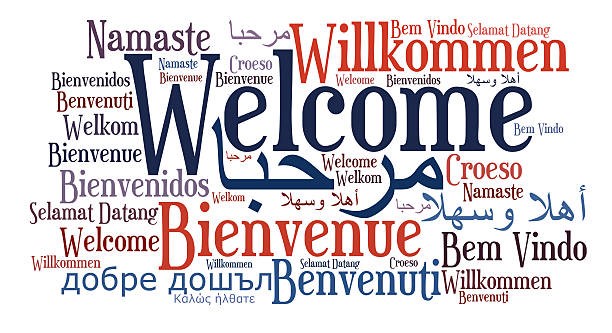Serving at the Nationalities Service Center (NSC), I have learned so much about the lives, languages, and cultures of our clients. As an immigrant and refugee social service agency, individuals and families from all over the world seek out support from the diverse programs available at NSC. Some of these programs include refugee resettlement, services for victims of human trafficking, employment support, legal services, and health access, to name a few. One of the beautiful things I’ve observed at NSC is the simultaneous ability to provide this broad range of concrete services while still creating and maintaining a strong sense of community and commitment to our clients. When I started at NSC, I was excited at the comprehensiveness of the work, but overwhelmed at how much there was to learn. It quickly became clear to me that one of the central challenges in service provision to such a broad population is communication. In the most immediate sense, the communication that is facilitated by linguistic interpretation is invaluable to NSC’s work. As many clients are Limited English Proficient (LEP), meaning they are not fluent in English, even brief interactions like reminding a client of an upcoming appointment, can become confusing for all parties. I’m grateful for the helpfulness of multilingual staff, who step in during passing conversations with clients, providing much needed clarity on an appointment time or client question. Interpreters that are on-site at NSC, as well as telephonic, over the phone, interpreters, however, provide the bulk of interpretation. These individuals are an essential part of NSC’s work. This type of interdependence exemplifies the importance of working as part of a team, something that had been emphasized during pre-service orientation, as the work we do with in cooperation with others is much more effective than alone.
Beyond the necessity of interpretation and language access, my service at NSC has also emphasized the importance of other forms of communication. Some skills and frameworks that have been most important to facilitating mutual understanding with clients have been health literacy and cultural humility--skills covered during Pre-Service Orientation. Health literacy is the ability for a patient or client to obtain, process, and act on health information in order to make decisions. This also requires intention on the part of a provider to communicate clearly and ensure a client’s comprehension. Cultural humility, as opposed to cultural competency, does not require the acquisition of total knowledge of all cultures, but rather an understanding of the ways that cultural upbringings influence our interactions and perceptions of the world. Through practicing cultural humility, cultural difference can become less of a barrier to relationships or service provision, and instead creates space for self-reflection and a continual, reciprocal learning process.
One of my service activities is facilitating health orientation for newly arrived refugees within 30 days of their arrival. This presentation is an introduction to the US healthcare system, covering topics like health insurance, what to do when you’re sick, dental care, and overall wellness. In these sessions, clients have questions about some of the seemingly smallest things, things that I take for granted as somebody who grew up in this country. Explaining the process of registering at the front desk at an appointment, or how to pick up prescriptions at the pharmacy are skills that seem simple, but for newcomers to the United States are quite literally foreign. I have so much gratitude to be able to play a small part in getting care for immigrants and refugees in Philadelphia, deepening an understanding of health literacy and cultural humility through my service.

